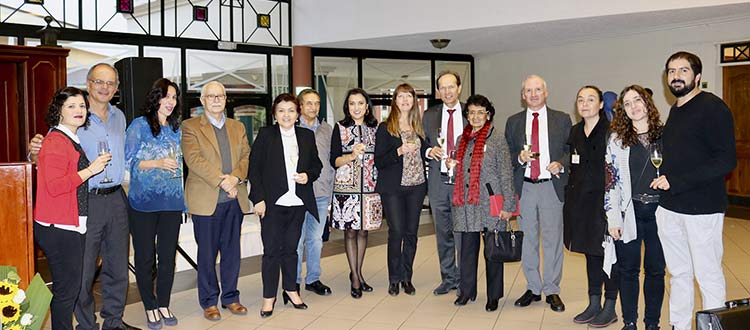MONOIL EVENT: Environmental Monitoring, Health, Society and Oil in Ecuador

On March 19th, the San Francisco de Quito University and the Institut de Recherche pour le Développement (IRD) presented the book and the photograph exhibition of the MONOIL project: Monitoring environment, health, society and oil in Ecuador.
Oil, “blood of the earth", is the main source of fossil energy in the world and of income for Ecuador. For 5 years (2014-2018), the Franco-Ecuadorian research program MONOIL participated in the assessment of environmental pollution, in the awareness of the effects of oil activities on the environment and for local populations, as well as the social and political responses to the generated changes. The results of environmental studies show the contamination of water with hydrocarbons, the presence of mercury and coliform bacteria in the water, contamination of the soil with agrochemicals, and finally the contamination of crops with heavy metals. The sources of these types of contamination do not correspond only to oil activities, but also to accelerated deforestation, excessive use of agrochemicals and lack of sanitation.
The populations in the studied areas suffer from high health risks due to the consumption of elements contaminated: food, water, and air. In recent years, the State has undertaken several projects to compensate the negative effects of oil activities, but with a limited outcome. The results were valued in 1 collective book («Our Living in the Ecuadorian Amazon: between the farm and the oil,» 349 pg., Ed. IRD-Abya Yala), 12 articles in national and international journals, four doctoral theses, two international scientific seminars (in Quito and France), a traveling photographic exhibition and workshops in the oil fields in the Ecuadorian rainforest with local communities.
The event included the intervention of the authorities of USFQ, IRD, and the French Embassy, as well as the presentation of the main results of the research and the experiences lived during the development of the project.
The photographic exhibition remained in the USFQ Main Hall until March 29th, 2019, and the entry was free for the public.
